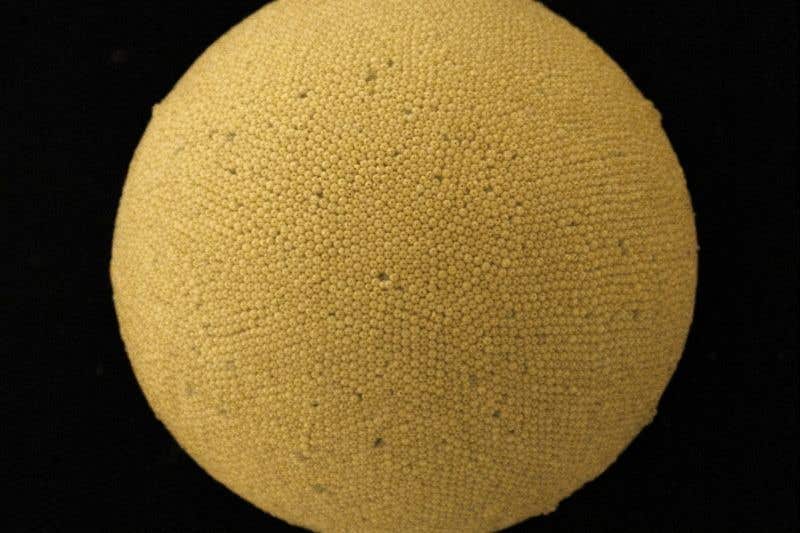Extra sleep boosts teen brain power, study finds
New research shows that just 15 more minutes of rest can sharpen teen thinking skills and improve brain health, even without hitting the ideal hours.

New research shows that just 15 more minutes of rest can sharpen teen thinking skills and improve brain health, even without hitting the ideal hours. (CREDIT: Shutterstock)
It’s easy to think that a few minutes less sleep won’t make much difference. But research shows that, during adolescence, even a short change in bedtime can shape brain development and thinking skills. New findings from scientists in the UK and China reveal that teens who go to bed earlier and sleep longer tend to have stronger brain function and perform better on cognitive tests.
These results come from a large U.S.-based project tracking the health and brain growth of children over time. The work adds weight to earlier studies linking healthy sleep habits to sharper focus, better memory, and stronger mental health. But it also highlights a troubling reality: even the best-sleeping teens in this study weren’t hitting the recommended amount of rest for their age group.
The science of teenage sleep
Sleep isn’t just a time-out for the body. It’s when the brain flushes out toxins, organizes memories, and trims away weak connections to make room for stronger ones. This process supports learning, problem-solving, and creativity. Deep rest also strengthens the immune system and helps stabilize mood.
During adolescence, however, the natural sleep pattern shifts. Bedtimes creep later, wake-up times get earlier, and total hours of rest shrink. This is a double hit for the teenage brain, which is still undergoing rapid changes in structure and connectivity. According to the American Academy of Sleep Medicine, young people between the ages of 13 and 18 should be getting 8 to 10 hours of sleep each night.
Professor Barbara Sahakian, from the University of Cambridge’s Department of Psychiatry, explains why this matters. “Regularly getting a good night’s sleep is important in helping us function properly, but while we know a lot about sleep in adulthood and later life, we know surprisingly little about sleep in adolescence, even though this is a crucial time in our development.”
Moving beyond self-reported sleep data
Past research often relied on self-reported sleep diaries, but these can be unreliable. To address this, researchers from Fudan University in Shanghai and the University of Cambridge turned to hard data from the Adolescent Brain Cognitive Development (ABCD) Study, the largest long-term study of brain development in the U.S.
Related Stories
- Scientists identify the optimal sleep temperature for healing and renewal
- New Samsung Galaxy watch feature uses math to fix your sleep and boost mental health
In this project, more than 3,200 adolescents aged 11 to 12 wore FitBits to track their sleep. The scientists compared this data to brain scans and results from cognitive tests that measured vocabulary, reading ability, problem-solving skills, and focus. They then confirmed their results using two additional groups of 13- to 14-year-olds, totaling about 1,190 participants. The findings were published in the journal Cell Reports.
Three patterns of sleep
The team found that adolescents fell into three main sleep groups.
- Group One made up about 39% of the sample. They slept an average of 7 hours and 10 minutes, went to bed the latest, and woke up the earliest.
- Group Two accounted for 24% and slept an average of 7 hours and 21 minutes, falling in the middle for all sleep measures.
- Group Three represented 37% and slept an average of 7 hours and 25 minutes. They went to bed and fell asleep the earliest and had lower heart rates during sleep.
On cognitive tests, Group Three scored the highest, followed by Group Two, with Group One in last place. Brain scans showed similar patterns: Group Three had the largest brain volume and strongest brain function, while Group One had the smallest brain volume and weakest performance.
Even though the difference in average sleep time between the top and bottom groups was only about 15 minutes, the gap was enough to show clear changes in brain activity and test results. “This drives home to us just how important it is to have a good night’s sleep at this important time in life,” said Sahakian.
Cognitive gains from a small edge
Dr. Qing Ma, the study’s first author, noted that the findings align with earlier research showing how sleep improves memory consolidation. This process, where the brain strengthens and stabilizes newly learned information, is vital for school success and everyday problem-solving.
The heart rate data offered another clue. Group Three had the lowest heart rates during sleep, which often signals better rest quality. Group One had the highest, a pattern linked to restless sleep, frequent awakenings, and more daytime fatigue.
Because the ABCD Study is tracking participants over many years, the team could see that these differences in brain size, sleep patterns, and test performance tended to appear years before and after the snapshot they analyzed. That suggests these habits and brain traits may be long-lasting.
Why some teens sleep less
The next question is why some adolescents consistently go to bed later and sleep less. Senior author Dr. Wei Cheng of Fudan University points to possible culprits: late-night screen time, gaming, and natural differences in body clocks. “Is it because of playing videogames or smartphones, for example, or is it just that their body clocks do not tell them it’s time to sleep until later?” he asked.
Researchers stress that while the study can’t prove cause and effect, the link between earlier bedtimes, longer sleep, and better brain health is strong enough to guide parents, educators, and teens toward healthier habits.
Building better sleep habits
Experts recommend creating a consistent bedtime, limiting screen exposure in the hour before bed, and making the bedroom a quiet, dark, and cool environment. Cutting back on caffeine and avoiding naps late in the day can also help. While these steps may seem small, this research suggests that even a short increase in sleep time could give the developing brain an edge.
It’s clear that, during adolescence, sleep is more than just rest. It’s a key ingredient for mental sharpness, emotional balance, and long-term health. And sometimes, the difference between an average brain and an exceptional one may be as little as an extra quarter-hour under the covers.
Note: The article above provided above by The Brighter Side of News.
Like these kind of feel good stories? Get The Brighter Side of News' newsletter.



